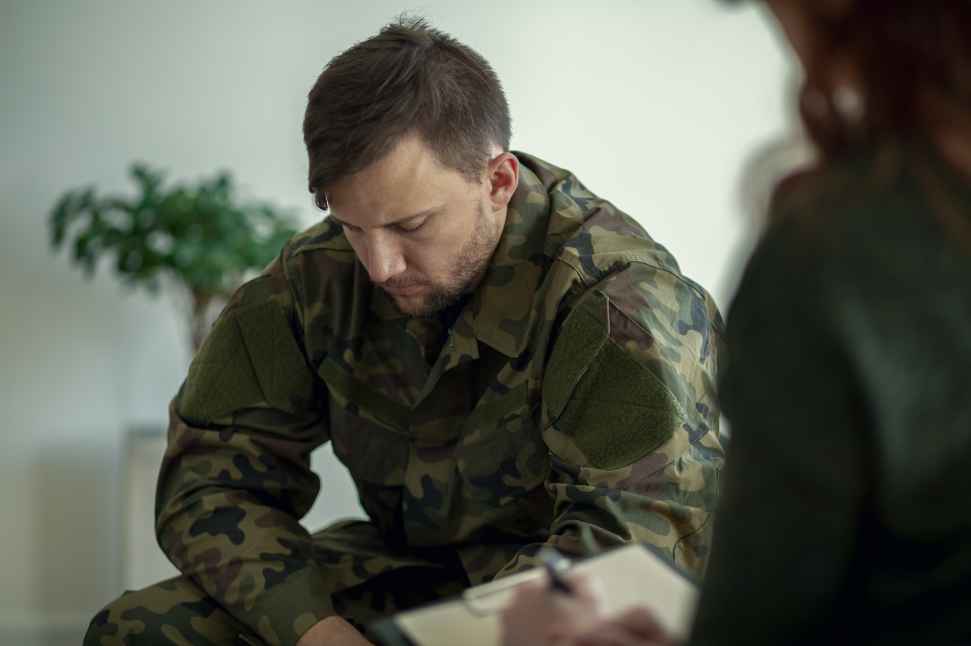Past projects/trials

Cognitive Processing Therapy (CPT) for Military Members, Veterans and First Responders trial
This project investigated how to enhance the effectiveness of an already established therapy, CPT. CPT was designed to help people recover after experiencing a traumatic event and has been widely used with veterans and military personnel, and now with first responders, for example, police, fire service, and ambulance officers. The study was conducted by Professor Reg Nixon from Flinders University and was funded by the Road Home Research Foundation (now Military and Emergency Services Australia [MESHA], part of the Hospital Research Foundation Group).
Significance of the Trial
The aim of this project was to see whether we can make CPT more effective in treating PTSD by allowing greater tailoring of therapy for the needs of the client, that is, personalising the treatment better.
Study Design
This study used an open trial design, meaning that all participants received therapy (i.e., no control group was used). Individuals could receive up to 25 individual therapy sessions of flexible CPT with a trained therapist although in most cases clients needed fewer sessions than this. Participants completed questionnaires at post-, and 3-month follow-up to evaluate outcomes. Although analyses are still being undertaken (data is being prepared for publication), preliminary results indicate positive impacts of CPT in terms of reducing posttraumatic stress and depression.
The published findings can be read at Prof. Nixon’s ResearchNow page or accessed directly below:
Nixon, R.D.V., Forbes, D., & Galovski, T.E. (2025, accepted 18.6.25). Cognitive Processing Therapy for posttraumatic stress disorder in first responders and veterans: Flexing the approach with explicit case formulation. Journal of Traumatic Stress. https://doi.org/10.1002/jts.70005

Guided Self-Help Cognitive Processing Therapy (CPT-GSH)
This project investigates an online guided self-help intervention using Cognitive Processing Therapy (CPT-GSH) in a stepped care model to help people recover from PTSD. The stepped-care approach can involve two stages of help, in which a person receiving therapy is matched to the level of therapy that most suits their current needs. This will be compared to a comparison group who will receive a standard Cognitive Processing Therapy.
The findings are being prepared for publication and will be available at Prof. Nixon’s ResearchNow page.

The Effect of Awareness on Negative Thoughts
This study aims to investigate whether increasing awareness of unwanted trauma related thoughts (intrusions) can benefit PTSD treatment outcomes. This research is being conducted because the current assessment of intrusions relies solely on self-reporting and an increased awareness could contribute to these thoughts being assessed more frequently.
The published findings can be read at Prof. Nixon’s ResearchNow page and include the following studies:
Sun, Y.J., Takarangi, M.K.T., & Nixon, R.D.V. (2025). Do alexithymia and maladaptive cognitive processes influence awareness of trauma memories? Psychology of Consciousness: Theory, Research, and Practice. https://doi.org/10.1037/cns0000426
Sun, Y.J., Takarangi, M.K.T., & Nixon, R.D.V. (2023). Exploring intrusions without awareness: Characteristics and influences of meta-awareness failures. Journal of Behavior Therapy and Experimental Psychiatry, 81: 101889. https://doi.org/10.1016/j.jbtep.2023.101889

Daily Diary Trauma Study
This project aims to investigate how different people think, feel, and behave following potentially traumatic experiences. The online diary briefly captures peoples’ days to improve our understanding of small changes in posttraumatic thought processes.
The published findings can be read at Prof. Nixon’s ResearchNow page or accessed directly below:
Canty, A.R., Windsor, T.D., & Nixon, R.D.V. (2024). Using Experience Sampling Methodology (ESM) to improve our understanding of day-to-day intrusion frequency and related distress in survivors of trauma. Journal of Behavior Therapy and Experimental Psychiatry, 82: 101921. http://doi.org/10.1016/j.jbtep.2023.101921
![]()
Sturt Rd, Bedford Park
South Australia 5042
South Australia | Northern Territory
Global | Online
CRICOS Provider: 00114A TEQSA Provider ID: PRV12097 TEQSA category: Australian University








